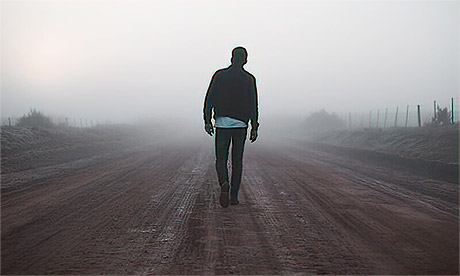Since around about 1970 in Australia, the trend of people stating they have “No Religion” on the census has been constantly, significantly, increasing – from 1966 when the sliver started to first appear in any noteworthy fashion, to the 2016 census where it had reached 29.6% of the total population.
In fact, the “not stated or unclear” is a further 9.6%, making the total potential non-religious group more like 39.2%.
But even if we discard this group, “No religion” is now extremely comfortably the largest group in Australia – the next-largest being Catholics, at 22.6%.
However, if you combine them with the Anglicans and “other Christian” segment they are still the largest at 52.2%.
If we average the census results of 2016, 2011, 2006 and 2001, the average growth of “No Religion” is about 3.5% per five years of the total population.
At that rate of growth, we will have no religious people in the country by 2118.
Obviously, this is extremely lacking as a scientific estimate, but it does show you the current trend that this country, along with the rest of the developed world, is on.
The same is even seen in what is traditionally the extremely religious United States.
The Pew Research centre found that people stating their religion as “None” increased in almost every single US state between 2007 and 2014.
In fact between those two periods, the average increase across the entire country was 43%, from 16% to 23%. In 1990 it was only 8.2%, which goes to show how quickly it’s changing.
So, religiousness in the West is on a downward trend and has seemingly constantly been on one for an entire century.
Many people are abandoning organised (or unorganised) Christianity and looking for their answers elsewhere.
In fact, a 2013 survey found that only about 8% of Australian Christians even attend church once a month, 47% of non-attendees explaining that it was “irrelevant to my life”, 26% “don’t accept how it’s taught”, while 19% “don’t believe in the bible”.
But, with that established, what happens next?
In the book Why Liberalism Failed (note: not the modern slang term for the left-wing, but classical liberals who were in favour of people governing themselves, i.e.; modern democracy) it is illustrated how much modern western thought was centralised on the individual – that in line with the ideals of the self-determined classical liberal, each individual should be able to do as they please, provided it doesn’t harm anyone.
However, this has also been a double-edged sword of sorts.
You see, western society was founded on a very complex, interwoven set of rules and customs and traditions.
What this means is that in many ways we’ve lost our communal glue. We have no common thread that brings us together in our local communities.
When we first set out, much like a young man with a newly-minted credit card, we dig into the vast wealth that’s been offered to us.
By pursuing individualism above all else, we’ve taken those systems and networks that were in many ways forming the glue of our communities and we’ve pulled them apart.
In many ways, our destruction of this glue hasn’t been through intent, but purely by deciding that the previously accepted “God’s Law” was no longer valid in many cases, and humans had a very wide-ranging right to challenge religious laws and assertions – from not attending church to gay marriage.
In fact, this increase in the priority of individual thought was initiated by Luther, when he nailed his challenges to the door of the church in Germany and started the Reformation.
This tumbling effect simply never stopped, creating much more liberally-minded states, albeit still religious.
But you can see it’s a case of change by degrees, from the initial challenges to Catholic domination, through the Protestant (note they are named after their protesting nature) to those who have then protested Christianity itself.
Slowly we have learned to question what we’re taught, and this has grown larger and larger until it has consumed much of our own cultural bedrock.
Human beings are communal, social creatures in many ways. We need the bonds we form with other people, we need that interconnectedness. Continue reading
Additional readingNews category: Analysis and Comment.




